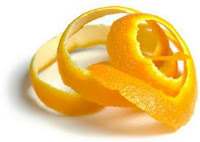As you may have heard, a California woman is suing the maker of Tropicana orange juice for misleading consumers that their product is “100% pure and natural” when it allegedly is not.
In her class action lawsuit, Angela Lewis said Tropicana deceives consumers by misrepresenting its Pure Premium juice in advertising and packaging.
Tropicana claims “16 fresh-picked oranges [are] squeezed into each 59oz container.” But according to Lewis, PepsiCo Inc. processes their juice extensively, and adds chemical aroma and flavours that change the juice’s “essential nature” and extend shelf life.
For its part, Tropicana has issued a statement that it “remains committed to offering great-tasting 100 percent orange juice with no added sugars or preservatives. We take the faith that consumers place in our products seriously and are committed to full compliance with labeling laws and regulations.”
Dig a bit online and you find that the packaging and advertising claims of other well known brands have also been challenged with class action suits, including Old Orchard, Welches White Grape Juice, Ben and Jerry’s All Natural Ice Cream and Quaker oats.
Now I don’t think it’s surprising that companies make claims about their products being natural, after all this is what people want. And companies are in business to give us that.
With a “premium” product, Tropicana can profit from the public’s desire for natural products, and charge a premium price.
The problem is that natural is not a regulated term like organic or certified organic. It’s the public that seems to think that natural is some kind of guarantee of quality. It is not.
Natural doesn’t mean anything in the food industry … except that we may be more likely to buy it.
It will be interesting to see what happens with this case.
